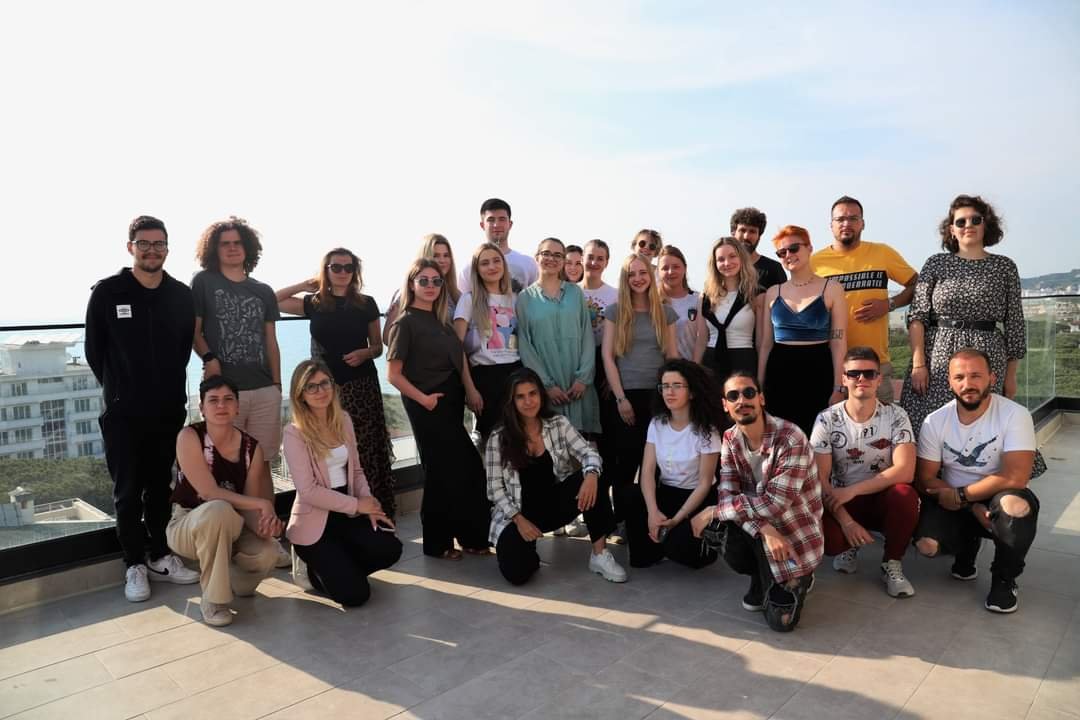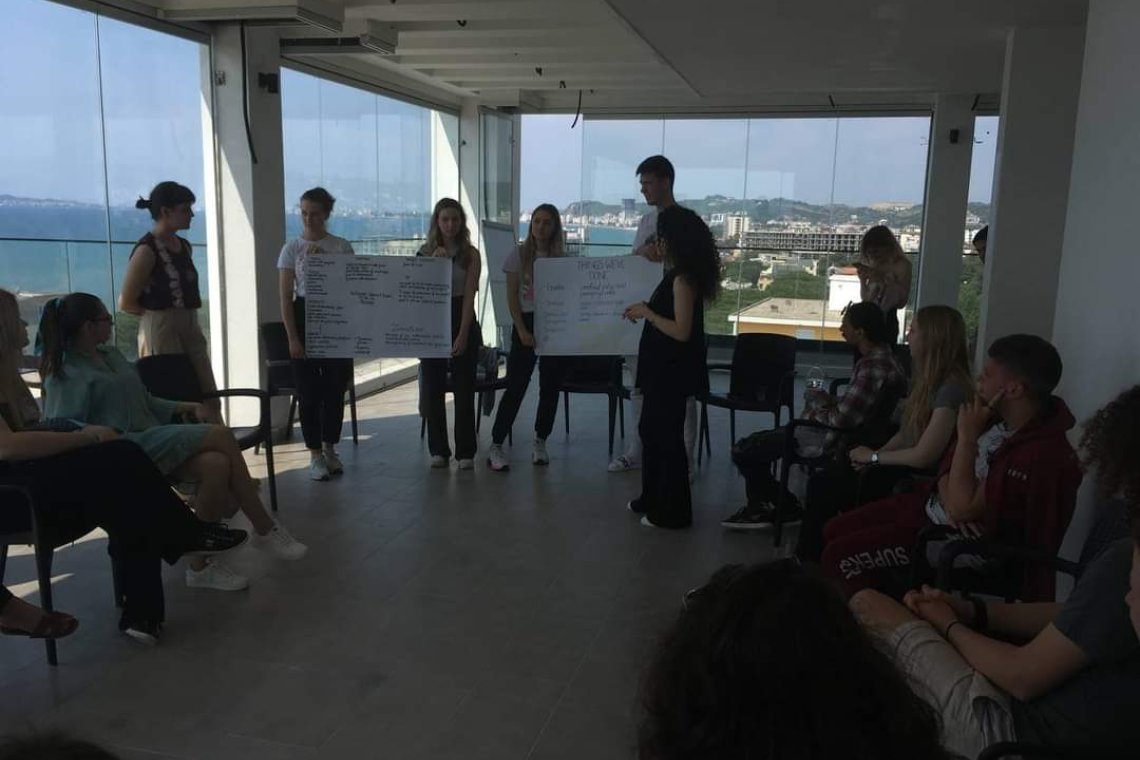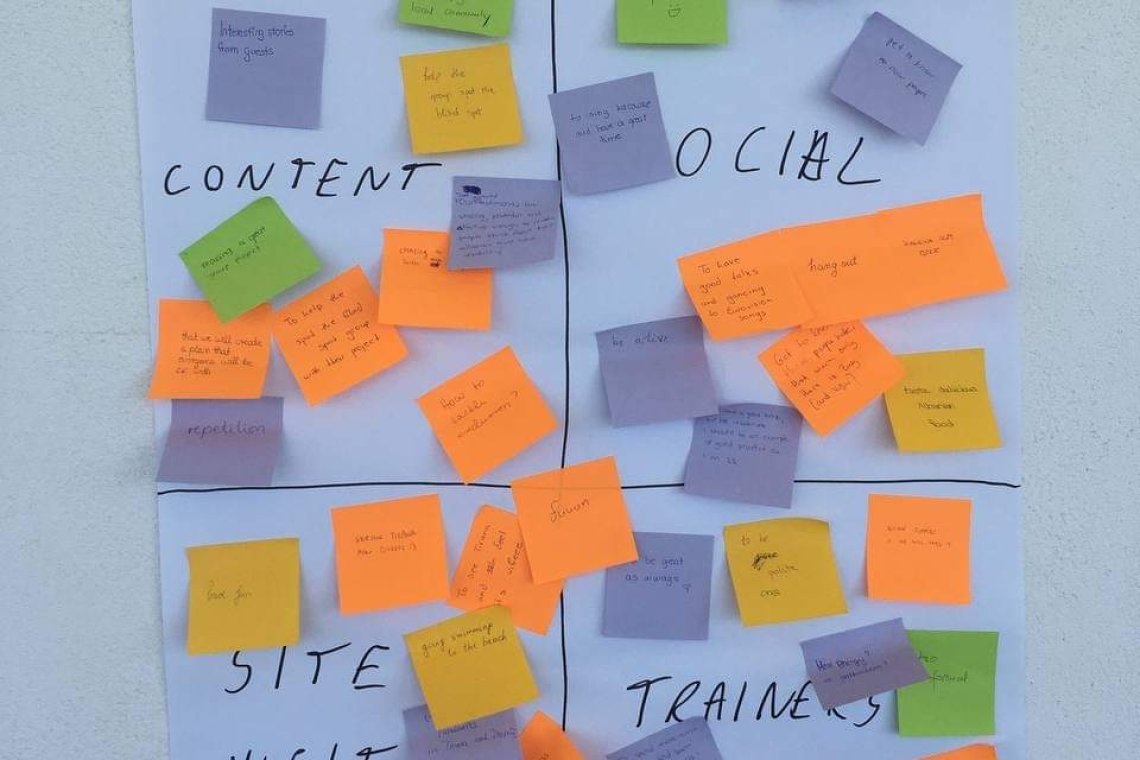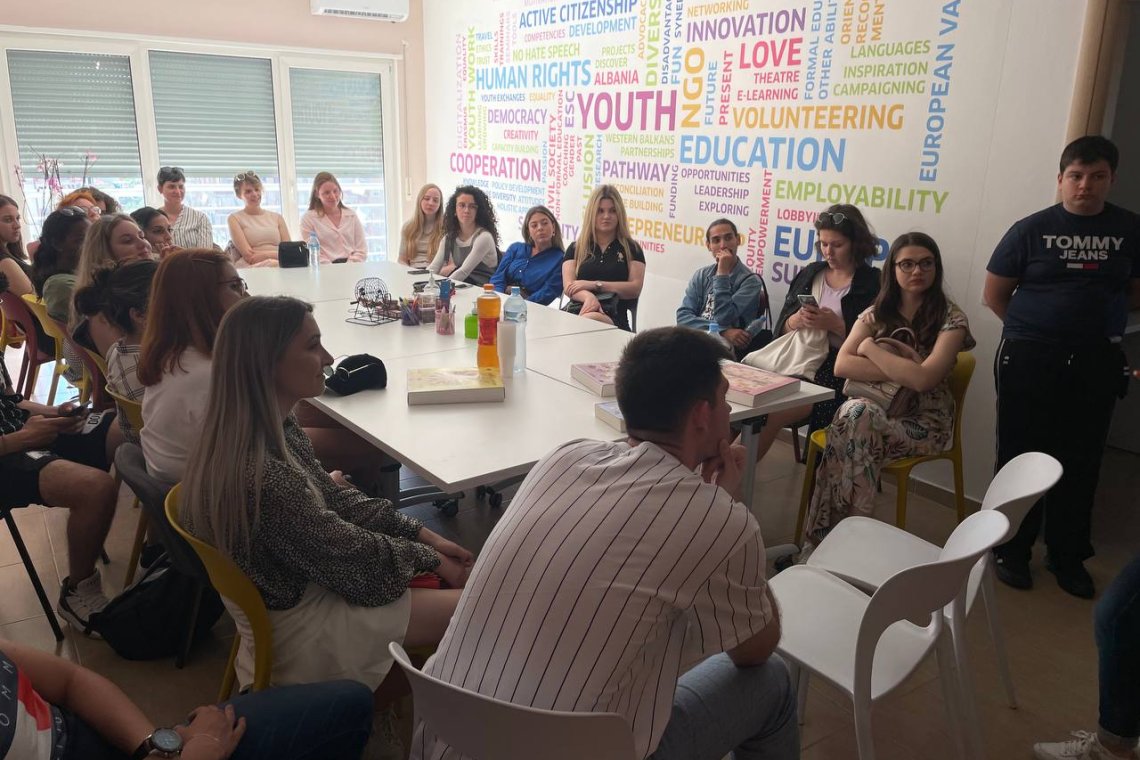Reflection of inclusion issues and group unitedness marked the site visit to Albania
Last study visit took place from May 11 to May 15 in Durrës, the second biggest city in Albania, and this group's members tried to find answers to and solutions for the following question: “How to directly impact exclusion in society?
A twenty-two-year-old Holdion Hodo from Albania found himself in the role of a host for the first time.
Since members of the group planned and agreed on project activities online, which caused communication difficulties, meeting in person now made it easier for them to precisely determine their goals and tasks and divide their responsibilities. Group participants had also well researched the topic of their project, which helped them better understand the societal position and reality of people with physical disabilities that live in their local communities.
Besides members of the group that is dealing with the topic of inclusion, members of peer review group also participated in site visit activities by analyzing the work of the site visit group and giving back their feedback. One of the members of the peer review group was Visar Kukaqi, a participant from Kosovo that had not previously taken a part in study visits organized as activities of We make democracy! project. He said that at the beginning he was quite skeptical as he was being introduced to a group of people that had known each other from before: “It was amazing to meet the whole team, I felt as if I had always been a part of the project.” Visar also said that he was impressed by the given opportunity and space to analyze and discuss about site visit group’s initiatives as it enabled the exchange of experiences between participants and allowed them to learn from one another.
During the site visit participants could also learn more about nongovernmental sector in Albania and efforts and practices of those experts that work on the promotion of inclusion, equal opportunities, and better quality of life for youngsters and people with physical disabilities.
Participants impressions
For Xhesika Pasha, a participant from Albania, working with people with disabilities was both a delight and challenge: “What I realized was that the only disability one can have is one’s own way of thinking and perception of the world around them. Nothing can restrict our desires and passion.”
Bina said that because of the research and group work she started to think about things she had never thought of before and that it brought her attention to the issues she had not been aware of: “I learned that we as a society have an important say regarding these matters because we are the once that make people with physical disabilities often feel like they are different when they are not. They are just like us, but with different needs.”
One of the site visit activities was Tirana treasure hunt that enabled participants to see more of the Albanian capital and its landmark and monuments. Our interviewees, members of We make democracy! project, shared with us their most memorable moments from the site visit in Albania.
“I would highlight as one of the best moments the treasure hunt in hot Tirana because my group unexpectedly ended up on the stage of the Spring Festival Tirana, as well as the dinner we had in a beautiful restaurant by the sea in Durrës where we tried delicious Albanian dishes, performed Albanian traditional dances to Albanian music, and got to see what Saturday night looks like in that port. Those images and moments are the ones I will remember for a long time” – said Ivona Kukić.
“For me the most memorable moment of this exchange was when we, participants from Albania, taught other participants how to perform our traditional Albanian dances because I saw that they were all really interested to learn them and find out more about our culture” – said Holdion Hodo.
“To me the most impressive thing was to see the progress we made as a group – our hard work, cooperation, learning new things, building and strengthening our friendships. I really enjoyed it all” – said Bina Guzelj.
The reality of people with disabilities in the Western Balkan countries and Switzerland
Except for Slovenia and Switzerland, in other countries that participants come from people with disabilities are still one of the most vulnerable groups in society. In rural areas, not only are they excluded from education system and job market, but they are also hidden away and isolated from the rest of the society and everyday life. Ivona Kukić, one of the members of the site visit group, said that as a group they came to a conclusion that things are improving, and that the said change is observable in all participating countries.
Future group plans
By the end of July, members of the site visit group plan to upload and share gathered testimonies on the We make democracy! platform and the official website of SAJV. Each testimony from each of the participating countries – Albania, Bosnia and Herzegovina, Croatia, Serbia, Slovenia, and Switzerland, will be complemented by charts and diagrams that will show data and statistics regarding the societal position that people with disabilities have in these countries. Group members will also start an online campaign and promote their content. As they say, they all hope that their initiatives will contribute to a greater visibility of people with physical disabilities, greater sensitivity and higher awareness about the reality of people with physical disabilities and their needs.
After the site visit in Albania participants are yet to attend the final conference that will be held from September 21 to September 24 where they will present the final results of their project activities.
"We make democracy" project is implemented by the Swiss National Youth Council (SNYC) and its long-term partners: i-dijaspora in Switzerland, the Association “Naša djeca” Zenica, “Inštitut za politički menedžment”(Institute for Political Management) in Slovenia, and Youth Center "Perspektiva" in Albania.
Become a member of our network!
Note: Copying parts or the entire text is allowed with the obligatory citation of the source.




